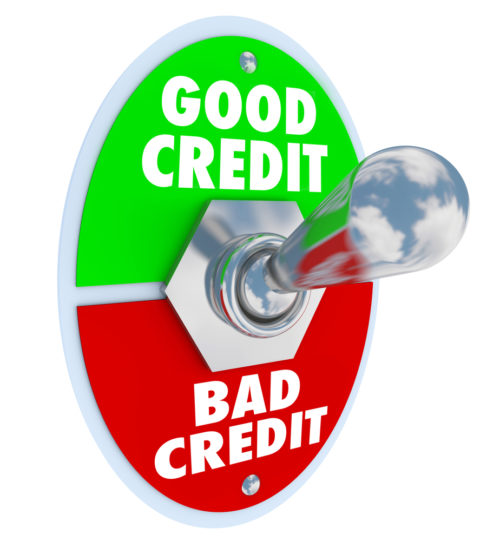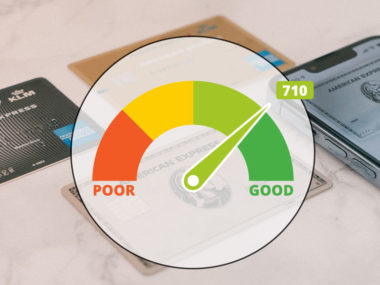
Whether you’re hoping to make a large purchase, or just starting to build credit, you’re well aware that credit scores matter.
Credit scores are used by lenders to determine the likelihood that borrowers will be able to pay back their loans. The higher the credit score, the more likely that borrowers will make timely payments on a consistent basis.
Table of Contents
What is a Good Credit Score Range?
As we’ve highlighted in previous pieces, credit scores are a metric that helps lenders, landlords, and creditors view your dependability as a borrower. These scores take into account your payment history, the amount you owe on your current debts, and the length of time that you’ve been a borrower, among other factors. From there, you’re assigned a score, likely based on the FICO model (300-850).
Based on the FICO model, good credit scores usually range from 670-799. Exceptional credit scores are in the 800-850 range. If you’re looking to make a big purchase and have less than ideal credit, however, there are options available to you.
What is a Good Credit Score to Buy a House?
Purchasing a home can be a challenging process for anyone, especially if it’s your first time. For many aspiring homeowners, anxieties about their credit score can prove to be especially daunting. Many might be wondering what credit score they might need in order to successfully purchase a home.
Let’s clear the air now. There is no mandated credit minimum needed to purchase a home. Instead, your terms will depend exclusively on your lender.
“The minimum credit score needed to buy a house is determined by the lender,” write the experts at Experian, one of the largest lenders in the United States. “Different lenders have different levels of risk tolerance and set different criteria, along with different cutoff points for the minimum score they are willing to accept.”
Although there is no set minimum credit score that is used universally by credit agencies and lenders, the higher your score, the more likely you are to be approved for a home loan with favorable terms.
A score of 750-850 is considered “excellent” by FICO and Vantage standards, whereas a score of 700-749 is considered “good.” Having these kinds of scores indicate that borrowers have been consistently meeting their obligations when it comes to borrowing and repaying debt.
That’s not to say that you won’t be able to get a loan if your score dips below 700. There are a number of financial institutions that will still lend to you if you’re in the market for a home loan and have what is considered poor credit. However, having a higher credit score has the potential to save you quite a bit of money.
“In the long run, having a higher credit score has the potential to save you thousands of dollars in interest over the course of your loan period,” Kerry Rivera of Experian writes.
The reason?
“Subprime borrowers generally have a credit score below 640. This group of borrowers has higher default rates and credit histories marked with higher delinquencies and credit utilization,” Rivera continues.
In essence, lenders charge subprime borrowers higher interest rates to protect them from the risks associated with lending to these populations. Those with “good” or “excellent” credit scores, on the other hand, will be eligible for better terms over a long period of time, saving thousands of dollars over the course of their loan.
Recent data, provided by the Fair Isaac Corp. (FICO), shows how a range of credit scores affect the rate you’re likely to receive when applying for a mortgage.
As of 2017 (the last year for which this data is available), rates on a $216,000 30-year, fixed-rate mortgage, your monthly payments will amount to the following, depending on your credit score range.
- 760-850 (3.64%): $987/month
- 700-759 (3.86%): $1,014
- 680-699 (4.04%): $1,036
- 660-679 (4.25%): $1,063
- 640-659 (4.68%): $1,118
- 620-639 (5.23%): $1,190
What Is a Good Credit Score to Buy a Car?
If you’re looking to finance a new or used vehicle, as with all big purchases, it’s likely that you’re paying close attention to your credit score. But if you worry that your credit score could keep you from purchasing a vehicle, you might be severely underestimating how far dealers are willing to go in order to sell you a car.
As with home loans, there is no mandated minimum credit score needed to buy a car. According to recent data by Experian, more than 20 percent of car loans go to borrowers with credit scores below 600, and 4 percent go to those with scores below 500.
When it comes to car loans specifically, borrowers can expect to receive different interest rates based on their credit score. Below are the average car loan rates based on credit score for both new and used vehicles.
New Car Loan
- Super Prime Credit Score Range (781-850): 2.6 percent
- Prime (661-780): 3.59 percent
- Nonprime (601-660): 6.39 percent
- Subprime (501-600): 10.65 percent
- Deep Subprime (300-500): 13.53 percent
Used Car Loan
- Super Prime Credit Score Range (781-850): 3.4 percent
- Prime (661-780): 5.12 percent
- Nonprime (601-660): 9.47 percent
- Subprime (501-600): 15.72 percent
- Deep Subprime (300-500): 18.98 percent
What is a Good Credit Score to Get a Credit Card?
As with other types of credit, you won’t solely be declined for credit cards if you have a low credit score. However, having a higher credit score makes it much easier to be approved for and receive reasonable interest rates from crediting institutions.
The less debt you have and the longer you’ve been making timely payments on your existing credit accounts, the more likely it is that you’ll be approved for cards with the lowest interest rates, and in many cases today, the most rewards.
Generally, the lower your debt and the longer your history of on-time payments with prior accounts will make it more likely that you receive offers from creditors who offer low interest rates, high credit limits, and good rewards.
Credit card issuers disclose a range of potential interest rates with each offer they send, based on the creditworthiness of the individual. Your final interest rate will fall somewhere within a range of percentage rates based on your credit score and other financial risk factors.
- Excellent credit (760+): Will be approved from most major card issuers; comes with prime rewards and benefits
- Good credit (700-759): Decent cards from major issuers; can earn some rewards
- Fair credit (660-699): Offers are designed for individuals with less-than-good credit; rewards are limited.
- Bad credit (below 660): Usually relegated to secured credit cards. These cards tend to be given to individuals with less than ideal credit scores
What is a Good Credit Score to Rent an Apartment?
While credit scores may not immediately disqualify you from renting an apartment, landlords and leasing offices do run credit checks with your housing applications and the results of those interactions can influence what happens next.
“Most apartment complexes and management companies will want to review your credit history, in addition to a tenant screening report, as part of their rental review process,” write the experts at Experian. “While a tenant screening report will show your rental history, landlords and leasing companies check your credit report to see whether you pay your other bills on time and manage your debts responsibly. Landlords may also check your credit score. There are credit scores specifically for making rental decisions. These scores evaluate your financial situation and help the landlord determine the likelihood that you will pay your rent on time.”
Credit requirements for rentals also vary depending on where you live in the U.S. In large cities like Boston, or San Francisco, for example, individuals with excellent credit scores are more likely to be approved for housing in desirable areas.
What Does it Take to Get a Good Credit Score?
Credit scores are constantly in flux. Whether you’re looking to make a big purchase, or simply hoping to apply for a credit card, there are things you can do in order to improve your credit score. Improving your credit score takes time, however, so it’s best to plan ahead. In order to so experts at Experian recommend the following:
- Making all payments in a timely manner
- Keeping your utilization rate as low as possible
- Pay down your balances as much as possible each month
- Have a mix of credit accounts that include revolving and installment accounts
- Applying for and checking your credit only when necessary
Building credit is a necessary process, but takes time and dedication in order to improve. For more information about building credit, visit our comprehensive glossary.
Image Source: https://depositphotos.com/






